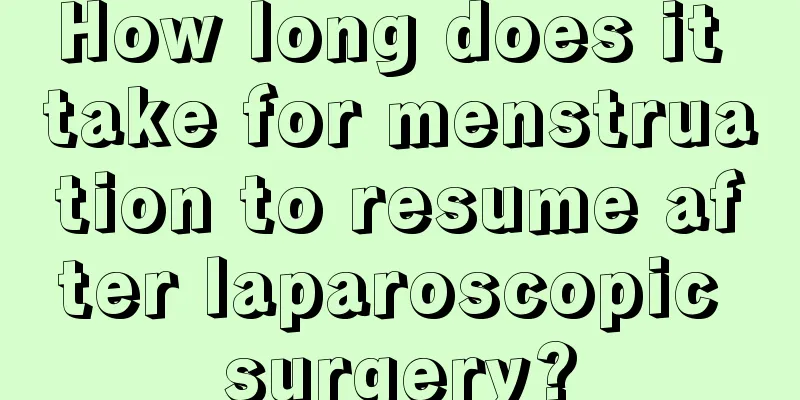Will I ovulate immediately after my period?

|
Ovulation period and menstruation period are two periods that women experience every month, and these two periods are very important for women. The former is related to having children, and the latter is related to physical health. Some people think that menstruation comes after ovulation, while others think that ovulation occurs after menstruation. So from a scientific point of view, does the body ovulate immediately after menstruation? You will not ovulate just after your period ends. Some women ovulate earlier, usually on four or five days, and the 14th is just right. You will not get pregnant, but you can use an ovulation test strip to find your ovulation pattern. Ovulatory disorders The causes of ovulatory disorders are complex and can be divided into: polycystic ovary syndrome (PCOS), hyperprolactinemia (PRL), premature ovarian failure (or latent premature failure), and hypogonadotropic ovarian dysfunction. In addition, thyroid, adrenal diseases and dysfunction or systemic diseases can also lead to follicular development and ovulation disorders. PCOS is the most common, followed by high PRL blood and premature ovarian failure. Most clinical manifestations of PCOS patients include prolonged menstrual cycle, infrequent menstruation (cycle > 36 days), or even amenorrhea (no menstruation for more than 6 months); some patients are overweight, obese, hirsutistic, have oily skin, acne, have a slight beard, and acanthosis nigricans; severe hair loss, deep voice, prominent Adam's apple, and enlarged clitoris are rare, and if they occur, they should be differentiated from theca cell proliferation disorder, androgen-secreting ovarian and adrenal tumors, and adrenal cortical hyperplasia; the most obvious sign on vaginal B-ultrasound is the presence of more than 8-10 small follicles (less than 10 mm in diameter) in the ovaries, enlarged ovaries, and increased echo of the capsule and stroma; endocrine examinations show excessive androgens and estrogens, and some patients have hyperinsulinemia and insulin resistance. Examinations for PCOS include: paying attention to physical signs of masculinization; checking whether the ovaries are enlarged, the number of antral follicles is excessive, whether there is a tendency for PCO, or even obvious PCO manifestations during B-ultrasound; reproductive endocrine examinations should pay attention to whether LH/FSH and androgens are elevated; glucose tolerance and insulin release tests can be performed on patients to detect hyperinsulinemia, especially in obese patients. |
<<: What are the early menstrual symptoms?
>>: How to induce menstruation if menstruation is not coming?
Recommend
Can I eat shimeji mushrooms during menstruation?
Shimeji mushroom is a kind of fungus food. As a f...
What to do if you have joint pain during late pregnancy
Pregnant women should pay attention to their phys...
Why do women have heavy menstrual flow during lactation?
It can be said that women who are breastfeeding a...
"Mycoplasma infection" causes frequent infection among children in many places! What medicine is effective?
In recent days, the number of children with Mycop...
Female shoulder pain
Salaried workers who often sit in front of comput...
Causes of swollen lymph nodes under the armpit in women
Lymph nodes are key immune organs in the body. Th...
What medicine should I use for inflammation of episiotomy wound?
Some women, considering that a caesarean section ...
How can women self-check uterine fibroids?
What tests should be done before treatment of ute...
How to replenish iron deficiency in late pregnancy
Iron deficiency anemia in pregnant women is a ser...
The consequences of thin endometrium and no menstruation
The harm caused by thin endometrium is quite seri...
What are the changes in leucorrhea during menopause?
I believe many people know that as people age, th...
What should I do if I have gynecological inflammation at the age of 19?
As we all know, adult women who have had sex, esp...
Why do my lower eyelids twitch?
I remember there was a period of time in high sch...









